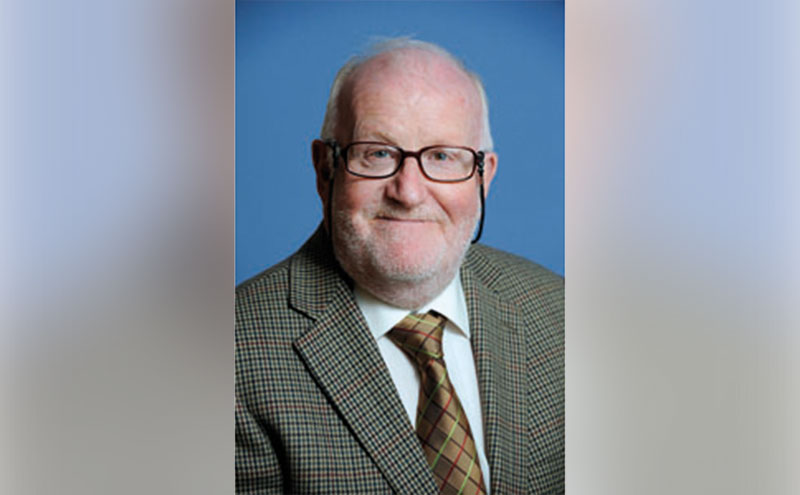
MOVES are afoot to ramp up promotion of early intervention and conflict avoidance techniques to solve construction-related disputes in Scotland.
Martin Burns, head of ADR research and development at RICS, and Scottish dispute resolution specialist Len Bunton are setting up a working group of industry stakeholders to encourage greater use of conflict avoidance processes, including the use of impartial subject matter experts to step in when disagreements occur to help resolve matters before they go down a more formal route of adjudication, arbitration or even litigation.
Martin was heavily involved in setting up a solution for Transport for London (TfL) a few years ago, when the organisation embarked on a major project to refurbish the London underground network. They set out to change the culture of their relationship with contractors to work more collaboratively to try and resolve issues in the boardroom rather than pass them onto lawyers at great expense.
Martin told Project Scotland, “I’ve worked on construction/engineering disputes for 30 years. It’s a fertile ground for disputes. Construction is the one area you’re guaranteed to have a dispute, simply because of the way the industry has historically dealt with conflicts or failed to deal with conflicts.
“TfL had a conversation with RICS around whether we could help them to underpin this collaborative working culture with a system that, if there was a disagreement, would help them to avoid ending up in an adversarial process.
“We came up with a process called CAP (Conflict Avoidance Process). An independent person, who was a credible expert nominated by RICS and agreed by both sides, would come in and be immensely credible on a particular subject and also impartial. The role of this person would be to give an answer to the question they’re grappling with and in doing so act inquisitorially. An adjudicator takes evidence from the parties on a very narrow issue and then decides that issue. This is much more about coming into the boardroom, talking to both sides, getting an understanding of where both are coming from, but also looking more holistically. They provide both sides with a fully reasoned out recommendation as to how a particular matter should be settled. The recommendation is clearly explained and is non-binding. What it does is give both sides a clear sense of where this might end up if they do go to adjudication or arbitration.”
Martin added that in his experience, a lack of information on one or both sides often lies at the heart of disputes. And because the CAP process looks at projects holistically, some options for settlement that hadn’t previously been thought about can come to the fore. The parties are still in a position where they retain control over the outcome and can accept the recommendation or use it to negotiate an adapted settlement.
Since TfL started putting CAP into contracts, it has been used around 30 times on significant matters. Martin said that in every case he’s aware of, the disagreements have never progressed to formal dispute resolution.
With a growing appetite for dealing with disputes proactively, RICS teamed up with other organisations including the Institution of Civil Engineers (ICE) and the Royal Institute of British Architects (RIBA) in what was called the Conflict Avoidance Coalition. They developed the Conflict Avoidance Pledge (CAP), in which organisations who sign up to it commit to try their best to avoid disputes and promote the concept of conflict avoidance.
Over 200 signatories have so far signed up to the pledge, including around 40 based in Scotland. It has been promoted by the UK Government cabinet office in its guidance to industry and also been endorsed by the Welsh Government.
“We’ve come up with a model procedure which people can use to make CAP happen on their contracts,” Martin added. “It’s a procedure people can adopt or adapt. What we’re doing now is working on developing an enhanced panel of RICS-accredited CAP experts. We’ve got the CAP panel that was originally set up for TfL, which currently is about 20 people. We’re now putting together a programme where we’re going to be recruiting highly experienced, highly credible professionals, putting them through a workshop training course with an interview assessment programme, with a view to finding and sourcing people who can be part of an enhanced panel of accredited professionals.”
In Scotland, Len Bunton is on a mission to make conflict avoidance commonplace across a wide range of public and private sector contracts. He recently, along with the RICS, organised a virtual meeting involving a number of key figures in the industry, in which the idea was floated of forming a group to target government and industry to try and help promote and encourage better relationship management, conflict avoidance and also techniques like CAP.
Len told Project Scotland, “We’re looking at bringing in what I call influencers across a cross section of the industry. It will be aimed at public and private sector procurers who we hope will write this CAP process into their construction contracts. If it operates – and I’m sure it will – it will stop parties racking up a lot of money in legal fees in disputes and allow them to concentrate on building the projects.

“It’s a very important time because it’s a real change in the mindset of the industry. It’s going to lead to a much more collaborative approach to the procurement of projects of any size. I think it will have a significant impact on payment and cash flow because it will get rid of disputes over payment. I’m not saying it will work every time, but it will be a big step forward if this gets traction.”
Both Martin and Len were encouraged by the feedback to the online meeting, which involved representatives from major contractors, sub-contractors, the university sector, the public sector, Scottish Futures Trust and various construction organisations.
Further meetings are planned, with Len describing CAP as a ‘stepping-stone’ in the overarching theme of developing a more collaborative approach to construction generally.
“We’re haemorrhaging so much money out of the industry on disputes that we really need to do something about it,” he added. “A lot of people say that adjudication has been very successful. What they don’t take into consideration is the amount of money it has cost the industry to actually go to adjudication. You’ve also got situations where even if somebody gets a favourable decision from an adjudicator, the other side say they’re not going to pay, and you have to go to court. It’s too easy to railroad the process.
“I’ve seen adjudications happening in the middle of a project and relationships are damaged beyond repair. Architects are there to design buildings. Contractors are there to build them. This is a sideshow, all this in-fighting and sparring that’s going on. We need to get away from that.
“The response to the online meeting has been very good. Some of the people didn’t know too much about the process so they found, from an educational point of view, it was helpful. The next stages of the working group will be to get our sleeves rolled up and help organisations get this process into play. I’m hoping that during 2021 a significant number of projects in Scotland will have this CAP process.”








